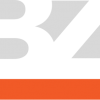Contrary to what popular psychology proclaims, we must know our weaknesses and know them well. Don’t let anyone else tell you otherwise. Why? First, so that you can avoid situations that play to your weaknesses. All workflow takes the path of least resistance, and, if you’re ignorant of your weaknesses, you’ll find yourself repeatedly doing things for which you have no innate ability, competing in places where you can never win.
Secondly, you must know your weaknesses to keep them from becoming fatal flaws. If there’s an activity you must do in your business that’s critical to its success and that activity resides in the area of your weakness, you have the makings of a fatal flaw. You can’t say, for instance, if you’re an independent consultant, “I’m not good at billing. So I’m going to stick with my strengths and let billing take care of itself.” I’ve got news for you, it won’t.
Avoiding Fatal Flaws
To keep a weakness from becoming a fatal flaw, you have two options: develop baseline competence in it or delegate it. That is, learn how to do it good enough to get by, or get someone else to do. That may take the form of asking someone within your organization who has a strength in this area to do it for you, or contracting with someone outside of your organization to do it. Either way, if you don’t have this awareness about yourself in a skill area that’s mission critical and keep stumbling forward, you’ll ultimate fall flat on your face. And your business will as well.
I can’t balance a checkbook to save my life. I forget to enter deposits, misplace checks, transpose numbers, and lose receipts. My wife, however, is a whiz at it. One of her favorite days of the month is reconciling our checking accounts to the penny (Creepy, huh?). Guess who handles the finances in our home? As a result of knowing my weakness and leveraging my wife’s strength, we’ve never bounced a check and never missed payment.
Look at Your Strengths Differently
Of course you must know your strengths, too. Not, however, for the reasons that are commonly assumed. First you must know your strengths so they can be developed into world-class skill. Most of us coast in the area of our strength. We rely on our gregarious personality in a sales meeting instead of preparing for it. We cobble together some inspirational thoughts before making a presentation instead of doing actual research. The presence of talent–even great talent–is not enough to guarantee success. Talent must be rigorously developed or you’ll forever wear the moniker of “does not fulfill potential.”
A second uncommon reason to know your strengths is to keep from overusing them. Any strength casts a dark shadow if over-utilized. For instance, if you’re a naturally humorous person, but crack a joke in every situation, you’ll end up being seen as the company’s court jester and not a serious leader. If you’re caring and compassionate, you may hesitate taking hard, necessary decisions to move your company forward. Conversely, if you’re a bold, decisive leader, you may alienate your people by acting without care and compassion. In this way your strengths, as well as your weaknesses, can become fatal flaws.
Bottom line: know yourself. Self awareness is one of the first skills leaders need to master, all other awareness flows from there.

